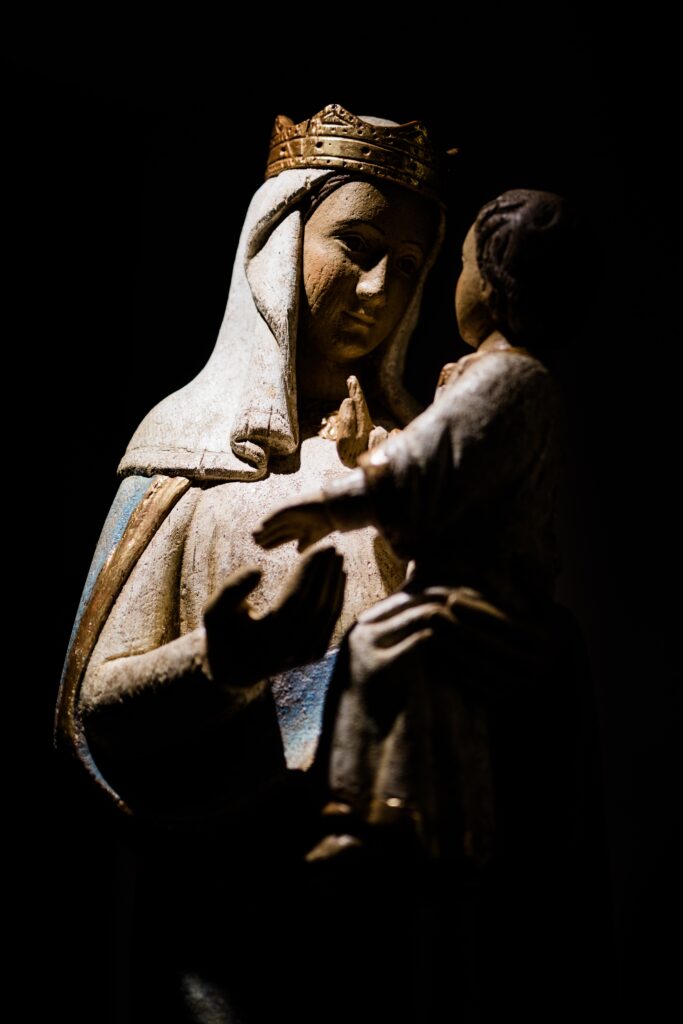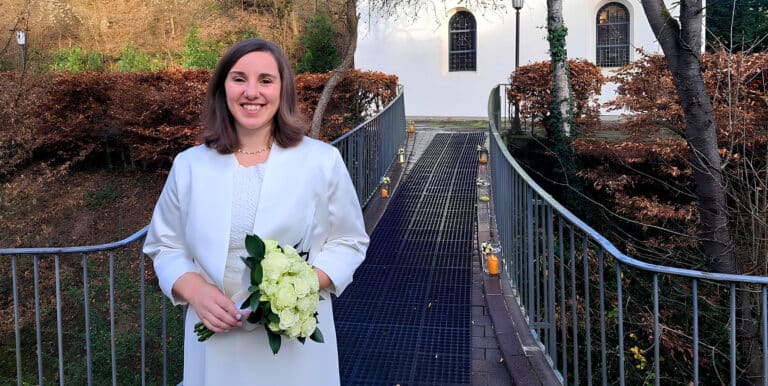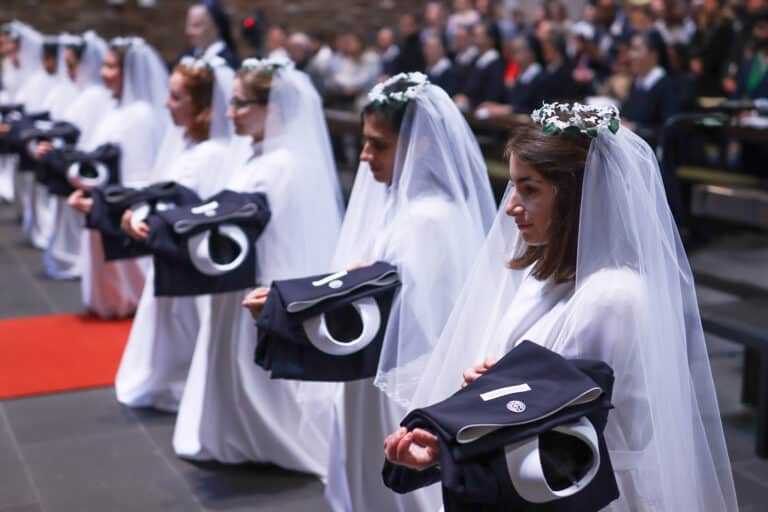During 2020, we celebrated the joyous occasion of the 100th anniversary of women becoming part of the Schoenstatt Movement. It was a time highlighted by reflections on the subject of “being’’ and the mission of the woman from various perspectives: historical, spiritual, theological, social cultural, etc. These topics were truly enlightening, yet they also posed several questions: Are the subjects discussed by F. Kentenich during the last century still relevant? How can we live the vision of the ideal woman in our times? What are our challenges?

Present and everlasting challenges
First, we must understand that there are permanent challenges, in every time and every culture, related to the timeless essence of the feminine identity and there are other challenges that respond to questions, needs and aspirations of a specific time.
As never before, the role of women is being questioned today and we are faced with a conundrum: What does it mean to be a woman? What is a woman’s contribution? Being a woman has become a topic, and in many cases, a flagship. Women today do not want to be ignored and they demand to be taken into account. Traditional notions and ideas about being a woman are rejected. Feminist movements, as diverse as they can be, thrive to raise awareness, vindicate….
Woman, an image of God. Redefining the image of God.
According to F. Kentenich, what constitutes the essence of the feminine identity is her filial mindset which, far from representing the typical weak, passive, submissive and dependent being, refers to the greatness and strength of those who base their lives freely on the loving guidance of the one who governs the world’s destiny. The woman is totally fulfilled when she flourishes as a daughter before God.
The concept of womanhood is best understood as it is derived from God, and God is best understood as Jesus derives from a woman. The Gospel, whose purpose is to reveal the Father, is more comprehensible and vital through the woman, in whose spiritual genes childlikeness is inscribed as a fundamental attitude of life: being a woman is being a daughter and guiding others towards the Father (maternity).
The concept of childlikeness, however, is a dynamic process; we are daughters, but we are also in the process of becoming daughters. Our ideal consists of becoming more like the Son (Fil. 2,5), to experience his feelings. Thus, in order to actually live the ideal of childlikeness, it is important to understand what our image of God is. If we believe in a God that just compensates human achievements, a God who forbids and condemns, or who is a distant and unreachable Being, then it will be extremely difficult to comprehend the authentic childlike attitude which attracts the merciful power of love when we recognize and accept our own limitations.
Self-recognition of the dignity of being a woman; no need for stereotypes.
What challenges are posed by childlikeness in today’s women? Is it just a stage of growth towards independence? Can it encompass all the stages of life?
F. Kentenich affirms that the highest degree of fulfillment that we can aspire to must be full and mature childlikeness, which consists in recognizing the dignity of the woman, her own weaknesses, and her dependence and complete submission to God in all circumstances. It is an unequivocal Yes to God; to whatever He wishes to offer to us. It is a lifetime journey, the same road traveled by the Blessed Mother.
Having a woman’s value and dignity recognized has been a historical challenge, although many times it has been a search for outside acceptance and recognition. In that sense, one of the major challenges today for women is not only getting recognition from men or society as to their values, originality and rights, but perhaps more critical, her own self-knowledge, acceptance and self-esteem.
The woman needs the certainty of being loved by someone who does not impose any conditions to be worthy of that love. Choosing love and God is the original source of a dignified childlikeness, not a woman’s own merits or human endeavors.
Thus, filiality, accepting that she is loved by God, affords her a profound freedom that allows her to be authentic and original, without the need to fit stereotypes or labels proposed by the trending ideas of the moment, which ultimately massify and depersonalize women.
Recognition of her smallness before God: God loves us, not “in spite of”
One of the notable challenges in a society that expects us to succeed in everything we undertake, is the recognition of our limitations, of our failures and our smallness. F. Kentenich emphasizes this when he affirms that “my misery, my acknowledged misery, accepted with confidence, is the greatest title that entitles us to God’s merciful love.” From this perspective, our known and acknowledged weaknesses and limitations lead us to God, making us eligible to receive His mercy while allowing Him to act in our lives.
A woman today is constantly battling with herself. On the one hand, she has high aspirations and ideals; on the other hand, there are constant limitations that hinder those lofty aspirations. Pope Francis, in his Patris corde states: “we often believe that God relies only on the good and victorious part of us, when, in reality, He speaks to us through and in spite of our weakness most of the time’’. F. Kentenich would have added: not in spite of our weakness, but precisely because of such weakness. It is through our smallness that we can bear witness of God’s greatness in our lives and of the fact that we are mere instruments in His hands. Accepting our limitations does not make us weak. It makes us strong, just like Saint Paul boasted of his weaknesses. (2 Cor 12,9).
Accepting of her mission
Once she knows and has accepted herself, in her smallness as well as in her royal dignity, the woman still has a great challenge ahead to discover her personal mission and her role in the community. She has been created for something great! She has been created to be the soul of our society and culture.
Through the ages, the sensible humanity of women has been underscored, as we recognize her special receptivity to understand and comprehend the human condition, human reality and individual situations (pain, needs, personal longings,…). In a culture that values success, productivity and performance, the feminine value is a warning and call to action against excesses as she rectifies social, cultural and economic trends before we become desensitized and dehumanized. The woman represents a surplus of indispensable humanity as society struggles with the limits of progress and a greater existential realism.
Thus, Pope Francis has stated: “it is necessary to open up spaces for a more incisive feminine presence” (08/19/2013), and we may add: a more Marian, more pragmatic, practical, and organic presence.
Society needs women who are “strong and noble, simple and kind, spreading love and peace and joy”. (Heavenwards, Hymn of the Instruments, 609) In that sense, we can examine the challenge posed by the need to give oneself through service. We often regard service as a form of servitude, when, in essence, it is totally the opposite: it is a form of self-control and freedom as expressed by Christ (John 10, 18, Matthew 20,28). Service is the vivid expression and understanding of the Gospel, and of the selfless surrender of Jesus and Mary.

She is being formed, maturing fundamentally in relationships
The feminine identity, on the other hand, is not formed or developed only on the basis of reflection, but rather from personal experiences and bonds in which her own being is revealed and confirmed. Women, just like men, are gradually formed, evolving fundamentally through their relationships. Within her true personal relationships, a woman finds meaning to her life, interpreting her inner aspirations. The absence of deep and meaningful bonds makes her hesitant with regards to her identity to the point of making her unable to answer to her own being.
Holding Mary’s hand
Within this overview of a woman’s search, vital discernment, and self-definition, the answer to the question regarding the feminine identity can only be found in life itself, in concrete persons who represent, embody and irradiate fullness of life as a woman; that is to say, women who serve as an immediate reference to other women, in whom the aspiration of others may be summarized.
On a supernatural level, the perfect role model to follow is the Blessed Mother. She can serve as the spiritual inspiration for attitudes that are then reflected in the way women live their lives to the fullest. She is a loyal daughter to the Father as well as the companion and collaborator in Jesus’ work. She teaches us the path to being childlike, dependent, serviceable, and all-giving. In other words, a woman’s current challenges go through Mary’s holiness as reference in order for her inner world to become visible, understandable and effective. When a woman encounters such a role model her heart is immediately lit up and she aims to live in that same spiritual world.
A great opportunity is a great challenge
The current situation represents a great opportunity for today’s woman. It is full of challenges. She cannot continue living as she has so far, but must get involved actively in public, social, cultural, and productive life, especially displaying with greater zeal and boldness her aspirations, her ideas, and her projects which must be a representation of her self and her ideal. She must permeate life in every situation and environment according to her profession, her vocation and her life status.
Experiencing a profound childlikeness will allow a woman the authenticity to which she aspires, the freedom she claims, the deep certainty of knowing that she is loved and accepted just as she is. This is the path towards a mature spiritual infancy, a path that we are called to travel and transmit with our lives and our beings.




